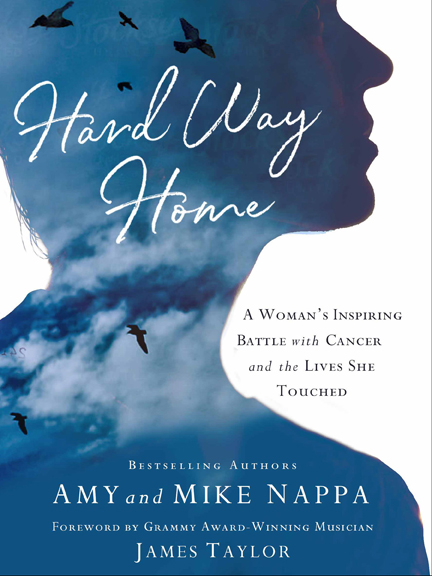An Editorial Team reason for rejection
Dear Mike,
Look at these adorable pictures of my kitties eating supper off china plates. Everyone should see this! That’s why I’d like you to represent my coffee table book filled entirely with pictures of cats eating fancy food on expensive tableware…
Sincerely,
Cat-Lady
Dear Cat-Lady,
No thanks.
Mike
Dear Mike,
OK, I know you didn’t like the Cats-n-China idea, but you’re going to love this one: How about a fictional biography of my childhood? I can fudge a few historical papers and voila—I’m a survivor of the Chernobyl nuclear disaster! No one would check out the stories, I’m sure, and besides if they did the controversy would sell more books…
Cat-LadySurvivor-Woman
Dear Survivor-Woman,
No…just…no.
Mike
Dear Mike,
Hey, it’s me again! Cat-Lady Survivor-Woman, and…
Dear Cat-Lady Survivor-Woman,
NO.NO.NO.NO. Whatever it is…NO!
Mike
Yes, my examples here are a little extreme, but you get the idea.
When you’re sending out pitches to editors and agents, you must remember that your name is irrevocably associated in my mind with whatever you send. If you send me one awful idea, I’ll probably shrug my shoulders and move on to whatever’s next in my pile. If you send me two awful ideas in a row, you’ve just earned yourself a brand name—and it’s not a good one.
You see, for me (and for most other agents and editors), it’s two strikes and you’re out. After you send me two obviously unpublishable books, it’s unlikely that I’ll give your third book more than a glance. After all, I will instinctively consider the source. “Isn’t this that strange lady who wanted to fabricate her childhood? No thanks.”
Hey, your third book might be a legitimate bestseller destined to make millions, but in my eyes you’ll be like “the boy who cried wolf” in the old fairy tale. I definitely won’t come running when you call.
So be careful what you send me. Every word you write shapes your reputation in my eyes. And if you send me garbage twice in a row, the third time you won’t even make it in the front door.
What You Can Do About It
1. Guard your reputation like a brand name.
As an agent, I’m extremely careful about what I will and won’t send out to editors. My own authors will testify that I’m sometimes a big pain in the butt in that regard. If I don’t think their writing is up to quality, I’ll insist that they rewrite until it is. Why? Because once I attach my agency name to their writing, we are all judged the same. I can’t afford for Nappaland Literary to be associated with poor writing, or else editors will stop listening when I pitch new books and new authors to them.
You need to guard your authorial reputation with the same tenacity.
Rejection in itself is no shame. But rejection because your writing is awful, your ideas are weak, or your perception of quality is woefully inaccurate—that’s a death sentence in terms of a writer’s career.
You must remember that every time you write something and send it out, those words shape an editor’s perception of you and the product (writing) that you are selling. That determines your reputation in the writing community—and your reputation can often mean everything.
So make sure to guard your good name among editors and agents—and never let yourself be accused of sending out two bad proposals in a row.
2. Send to the right targets.
One reason authors are ignored by editors and agents is because they prove themselves to be irrelevant. Just as bad as sending me two awful book ideas is sending me two proposals that obviously aren’t what I’d publish.
This ties into what we discussed earlier in Reason #7, but it bears repeating. If you want to get my attention, you’ve got to appeal to the audience I’m trying to reach. If you consistently send me books that don’t do that, pretty soon I’m giving up on you. You’ll get that form letter rejection before I even read your cover email.
So take care to send your proposal to the right people—to editors and/or agents who might actually want to buy it. (Read more about this at Reason #7)
3. Take time to become a better writer.
If you’re getting rejected on the basis of the quality of your manuscripts or the appeal of your ideas, it’s time to step back from the business side of writing and concentrate on the craft instead. Too many people like the idea of “being a writer” more than they like doing the work of a writer. Make sure you are someone in that second category and not the first.
Sometimes you have to admit that your writing needs to improve. Instead of whining about how no one will publish your work, learn how to create works that people have to publish in spite of themselves. Self-study opportunities are available in the writing reference section of your local library. You can also join a local writing group where so-called friends will gleefully rip apart your work and (hopefully) help you make it stronger. Creative writing classes are taught at just about every university and community college in the nation as well.
If you don’t want to get a reputation for mediocrity—and you want to avoid being ignored on the editorial desk—do what it takes to get better. (Whining is optional.)
Looking for more? Check out these links:










